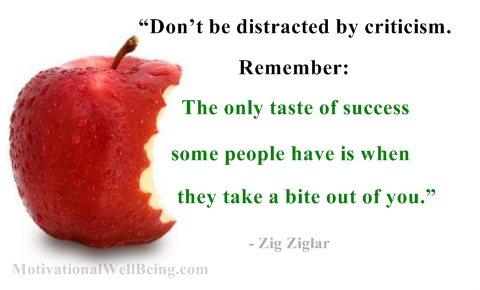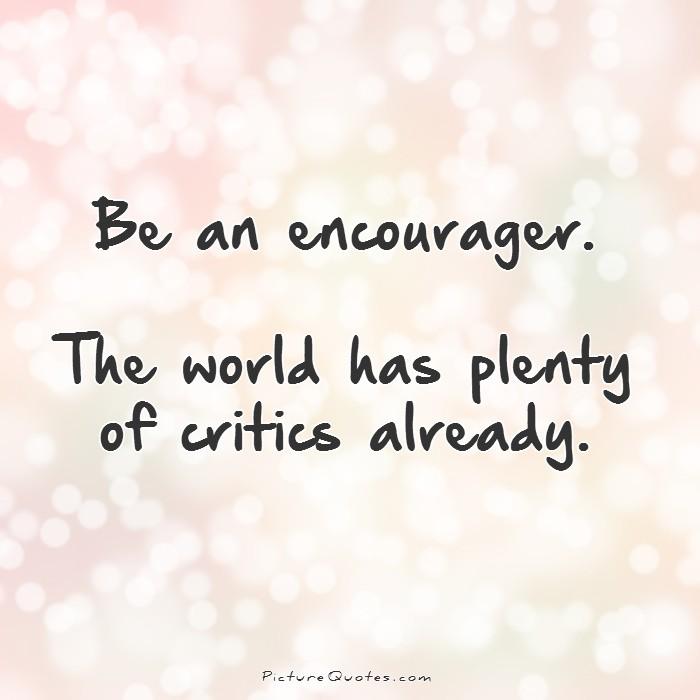Happy Monday! I hope you have a great start to the week. Remember, Monday is the start of the runway to the weekend.
Now, let’s talk about harsh criticism. No, I’m not talking about feedback or critique, I’m talking about the stuff that makes people stop pursuing their dreams.


Let me define exactly what I’m talking about:
Useful feedback / constructive critique: comments that point out how your work can be improved without using aggressive language; sandwiching honest but non-aggressive feedback on your work between compliments; having a positive attitude (i.e. using supportive language, encouraging you to keep up the good work).
Destructive criticism: comments that point out how your work can be improved while using aggressive language (i.e. stupid, useless, ridiculous, pointless); only providing criticism with no positive points; having a negative attitude (i.e. laughing or joking about your work, comparing you to “real professionals” and therefore insinuating you’re not).


It’s hard to stay positive about work you love when you feel attacked, and while creative people have to have thick skin, that fact should be true so that we are able to accept critique, not attacks. For attacks, we need shields, and once those shields are up, it’s much harder to hear the useful critiques.
Unfortunately, unnecessarily harsh criticism will never stop, so it’s up to us creatives to sort out comments that count from comments that are intentionally hurtful. To accomplish this, we need to ignore adjectives meant to sting as well as insults, and sift out the actual critique that could help our work. So when someone says, “This sentence is phrased in an ugly way”, we need to hear, “This sentence might need some work” because remember, critique and criticism are both opinions, not fact. So take a look at that sentence objectively. Maybe it does need work, maybe it doesn’t. That’s your decision, and your decision shouldn’t be made because of embarrassment or irritation caused by a comment. It should be made based on neutral consideration. Remember to neutralize the next criticism you see or hear and then – and only then – should you consider it.
To those reviewing writing, artwork, grading papers, writing about an actor’s performance, etc., just remember:


It’s all about helping each other, not tearing each other down, no matter what has happened to you in your personal life. So get out there and encourage the next person you see. You’ll both feel better for it.


raisingdaisy
This is so true and great advice to everyone, no matter what field we’re in.
christiestratos
Thanks, Daisy, I agree. No matter what you love doing, this is super important.
Amie Winters
Great advice, Christie! Live the life you dream, and don’t forget to help others along the way. Thanks for this post. 🙂
christiestratos
Thanks, Amie! That’s exactly right, just go for it and help others the way you wish you’d been helped – or the way you *were* helped!